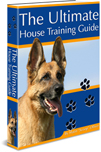
Being a responsible dog owner, it is a serious concern to know about getting a new dog with small children around. In my previous post, we’ve learned how to handle dogs and children. As an adult, we must understand that dogs and children must never be left unattended. Unless you want disaster, you must never assume that a child knows how to handle a dog responsibly. Accidents may happen so always keep an eye on your kids and your dogs.
Just as a puppy needs to be trained when it joins the family so are the children need to learn how to handle them. You must teach your kids the following:
- To respect the dog from the beginning. A puppy is a living thing, and not a toy you can do what you want with; handle the dog calmly; learn to understand the dog’s language; what is it saying when it growls or wags its tail?
- A child must also learn to recognize when a dog is frightened; never to hit or pester a dog; if a dog feels pain, it will bite; how to cuddle the dog; to leave the dog in peace when it’s asleep or in its basket; not to call commands or to call the dog’s name when it’s not appropriate; to let the dog come to it, rather than walking towards the dog; never to run up behind a dog; never to run towards a strange dog to hug it or give it something to eat. A dog may perceive a child running towards it as a threat, so approach it calmly. Always ask the owner first if your child can hug the dog or give it a treat.
Children are always proud of their newest acquisition. Before you know it, all their friends have been invited to come around and admire their puppy on the first day. However understandable their enthusiasm is, you must temper it. Prepare the child properly for the arrival of its new housemate, and make it clear that the new member of the family is of flesh and blood, and not a cuddly toy. It’s vital for the puppy to get the chance to get to know its own family first, so wait a few days with all those visitors. Children can be wild and agile, and a puppy can easily get frightened. Teach children to behave as calmly as possible with a puppy. Even if patience is not always a strongly developed feature of a child’s nature, they must use it with their puppy. They have to learn that the puppy needs to learn too. Hitting and shouting are out of the question (not only for the children!).
Somewhat older children can help to feed and care for a dog. An adult must accompany this, as a child is not in a position to take care of bringing up a dog alone. You can add tasks, as the child gets older. Of course, children will want to flaunt their new dog, but a word of warning is due here: a child must be mentally and physically stronger than a dog before it can take it out without an adult!
Adults that are afraid of dogs often transfer their fear to their children. They will then hide screeching behind their mother or father, and then be consoled for the fact that they’re afraid of that awful beast. It is better, though, for parents to suppress their own fear and teach their children how to approach a (strange) dog. This also helps safeguard the child. A child running away from a dog shrieking in fear can make a dog aggressive or awake its hunting instincts, but if a child behaves normally and calmly (hands always held low!) nothing will normally happen.
I am not an expert when it comes to this matter, just using my experiences and lots of common sense. I will gladly appreciate any comments and suggestions so we can all have a wonderful family with dogs and children around. 
















4 comments:
Nice Info,My Brothers Kids are Afraid of Dogs.They are Four and Six years old,This is Because his Neighbours Dog is Not Trained Mostly as it has Happened a Few Adults Also.But the Question is If small Children Have such a Bad Experience,How do you get them to trust Other Dogs that are not Wicked.
@ busstoped... sorry to hear about your brother's kids. it's really hard to cope up with such bad experience with an untrained dog. It would help to expose the kids to other "trained/behaved dogs" to get pass those bad experience and explain that not all dogs are the same just like humans, there are good and bad dogs. My son used to be like that. Adult supervision and communication is the key. Thanks for dropping by...
good job done guys... very nice blog.... very interesting and knowledgeble... hope you will post newer content in coming days..
dog pet care
There's a short developmental window in every dog's life when he's extremely sensitive to his environment. The number of positive encounters he has with other people and dogs during this period, which ranges from just a few weeks old to three or four months of age, can dramatically influence how friendly he is as an adult.
Post a Comment
I'll be glad to hear from you.